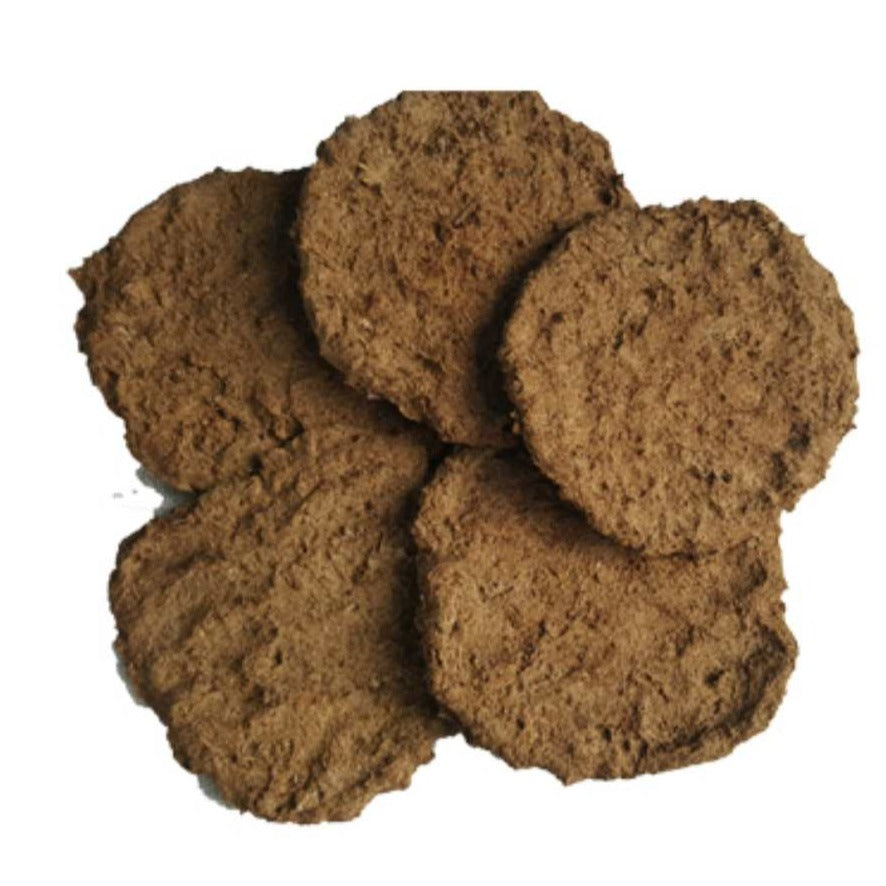Good Food Bar
Natural & Desi Cow Dung Cakes / Ghute
Natural & Desi Cow Dung Cakes / Ghute
Couldn't load pickup availability
Cow dung cakes, often referred to as "Gobar" or "Ghutka" in India, are traditional and natural fuel sources made from cow dung. They have been used for centuries in various parts of the world, especially in rural areas, for cooking, heating, and religious rituals. Here's a description of natural and desi cow dung cakes:
1. **Ingredients**: Cow dung cakes are made primarily from cow dung, which is collected from domesticated cows. In rural areas, where cows are common, this is an easily accessible and eco-friendly resource.
2. **Preparation**: The preparation of cow dung cakes typically involves a simple process. Fresh cow dung is collected, and it is mixed with straw or other organic materials to improve its consistency and facilitate shaping. The mixture is then shaped into round or square cakes and left to dry in the sun.
3. **Appearance**: Cow dung cakes are typically small, flat, and round in shape. They can vary in size, but they are usually around 4-6 inches in diameter and about 1-2 inches thick. When dried, they are hard and sturdy.
4. **Fuel**: Cow dung cakes serve as a natural and renewable source of fuel. They are used for cooking in traditional stoves, as well as for heating and lighting in rural households. They provide a consistent and slow-burning source of heat.
5. **Benefits**:
- **Eco-Friendly**: Cow dung cakes are considered environmentally friendly as they are made from organic material and do not contribute to deforestation or pollution.
- **Renewable**: They are readily available in areas where cows are raised, making them a sustainable energy source.
- **Inexpensive**: Cow dung cakes are low-cost or often free for those who own cows, making them an affordable option for cooking fuel.
6. **Religious and Cultural Use**: Cow dung is revered in Hindu culture, and cow dung cakes have ceremonial and religious significance. They are often used in rituals, pujas (worship), and as offerings to deities.
7. **Insect Repellent**: Cow dung, when used as flooring or as a coating on walls, can act as a natural insect repellent.
It's important to note that while cow dung cakes have been traditionally used for various purposes, there are also concerns about indoor air pollution when they are burned for cooking and heating. In recent years, efforts have been made to develop cleaner and more efficient cooking technologies in rural areas to address these health and environmental issues while still preserving the cultural significance of cow dung.
Please keep in mind that the use and cultural significance of cow dung cakes may vary by region and community.

